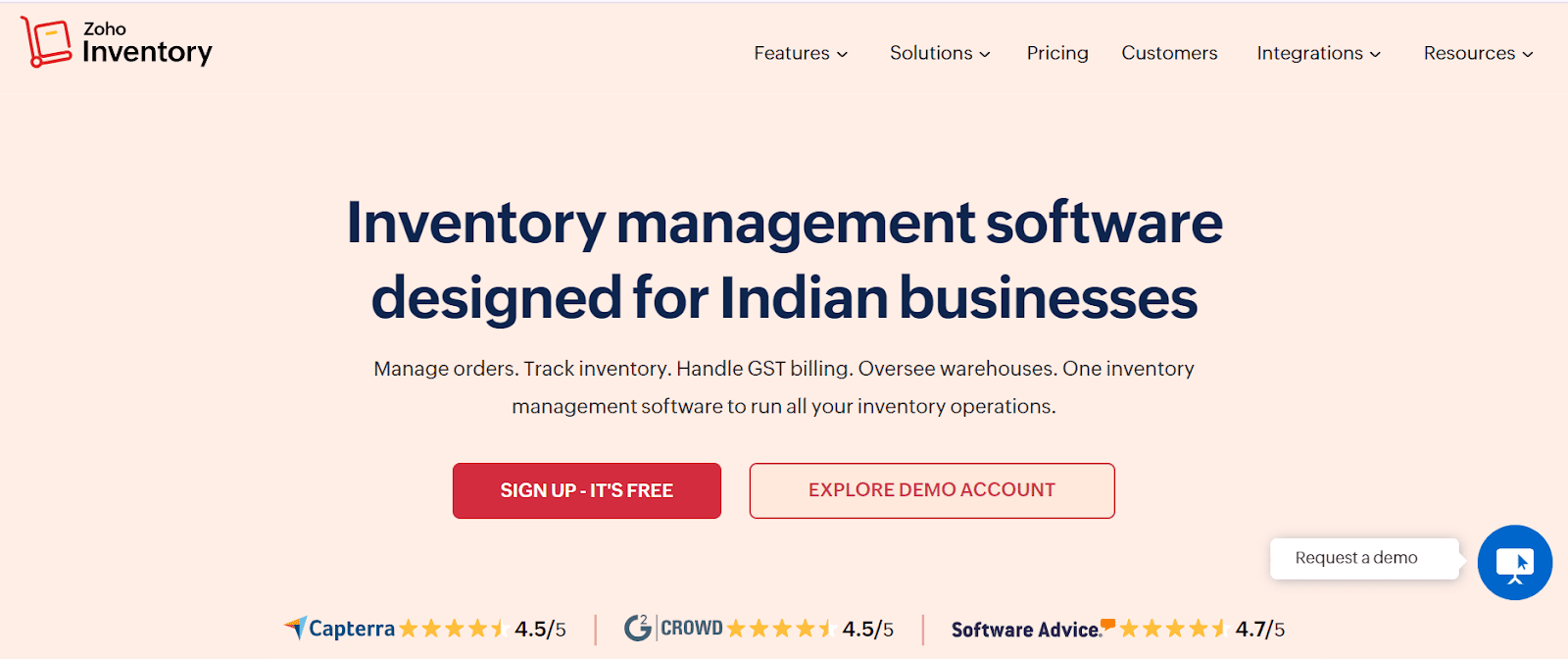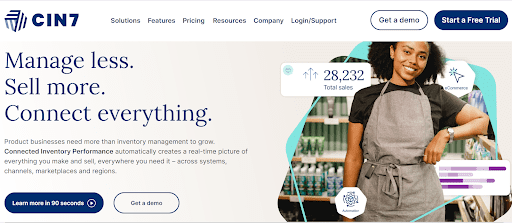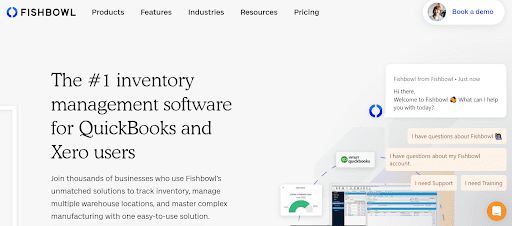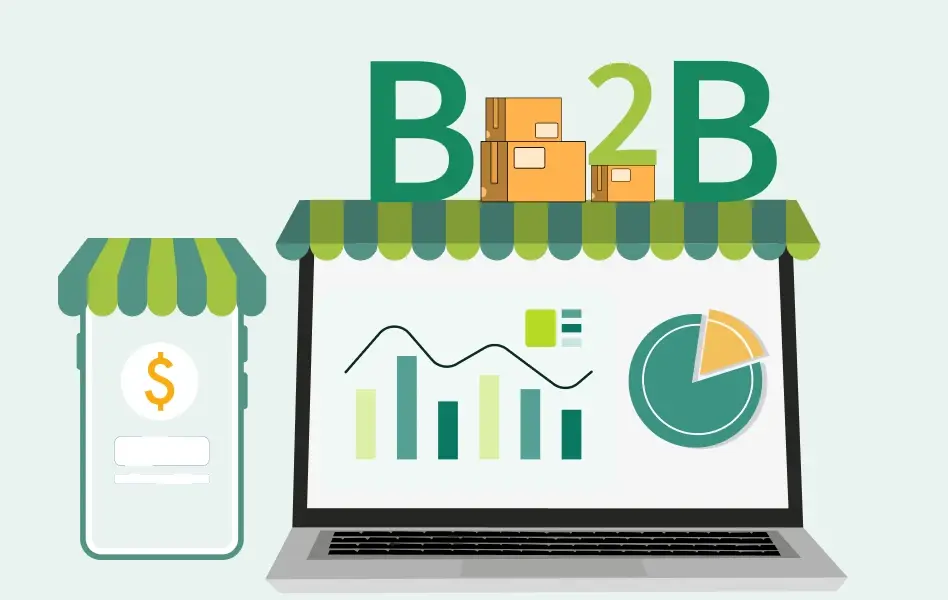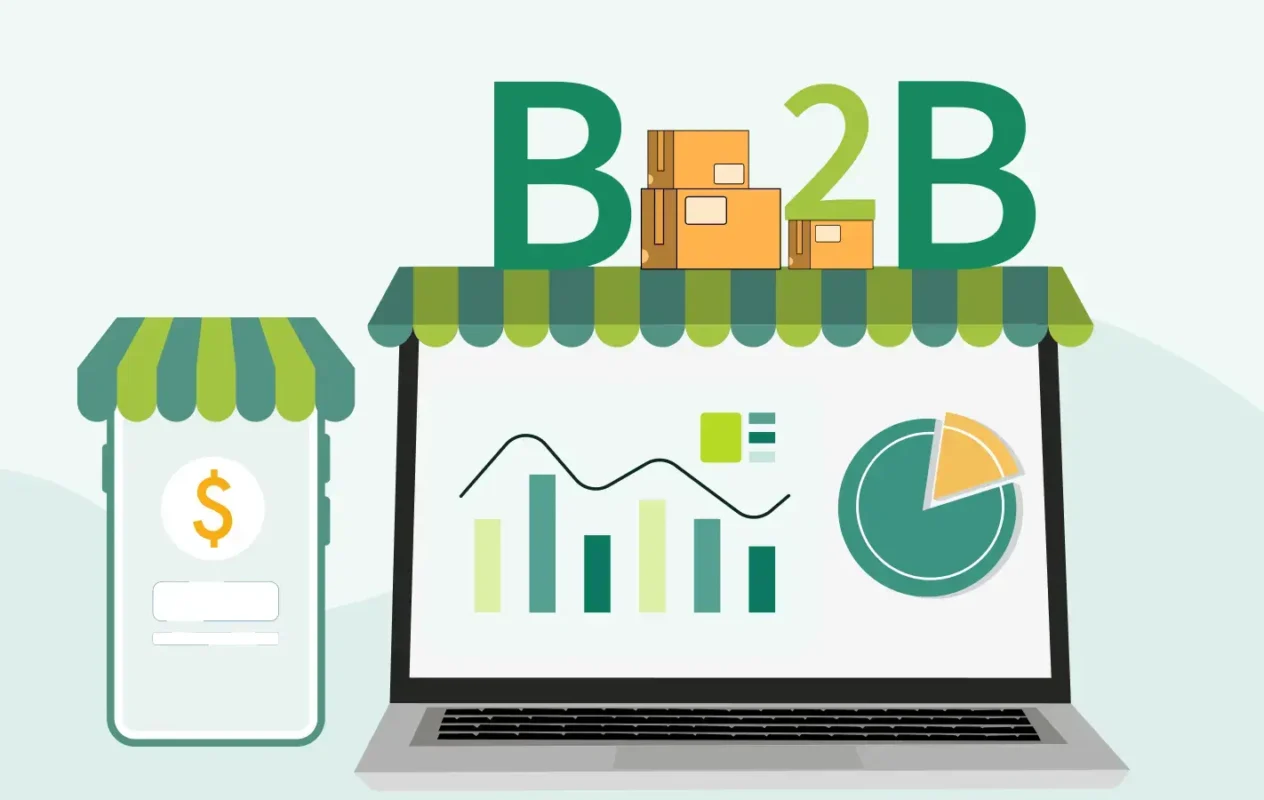Contents
- 1 Introduction to Warehouse Management Software for QuickBooks Integration
- 2 Key Features of Warehouse Management Software Integration with QuickBooks
- 3 Benefits of Using Warehouse Management Software with QuickBooks
- 4 Common Challenges in Implementing WMS with QuickBooks Integration
- 5 Factors to Consider When Choosing a WMS for QuickBooks Integration
- 6 Future Trends in Warehouse Management Software and QuickBooks Integration
- 7 Top Warehouse Management Software for QuickBooks Integration
- 8 Conclusion
Effective warehouse management is crucial for the smooth functioning of any B2B business. As businesses grow, managing inventory manually becomes increasingly complex and prone to errors. In fact, did you know that inventory inaccuracies cost businesses an average of 10% of their annual revenue?
Additionally, the warehouse management industry is booming, with the number of warehouses and storage facilities in the U.S. growing by 26% in just 10 years (20111 to 2020).
Integrating warehouse management software that is compatible with QuickBooks can transform how you handle inventory and accounting, bringing automation, accuracy, and streamlined processes.
This blog explores how warehouse management software enhances QuickBooks inventory integration, its key features, benefits, and challenges, and how WizCommerce supports this integration.
Introduction to Warehouse Management Software for QuickBooks Integration
Warehouse management software (WMS) is designed to streamline the processes involved in tracking, managing, and controlling the storage and movement of inventory within a warehouse. When integrated with QuickBooks, WMS provides real-time synchronization between your inventory and financial data. This ensures accurate stock levels and a seamless flow of information across both systems. For B2B businesses, using warehouse management software that is compatible with QuickBooks is a game-changer, enhancing operational efficiency and reducing human error.
Key Features of Warehouse Management Software Integration with QuickBooks
The integration of WMS with QuickBooks brings several powerful features that help businesses manage their inventory and finances more effectively.
Real-time inventory tracking
This feature gives businesses real-time visibility into their stock levels, ensuring that the data in QuickBooks is always up-to-date. This eliminates the risk of overselling or running out of stock unexpectedly, which can disrupt order fulfillment. For example, a distributor of construction materials can rely on real-time tracking to avoid delays in project deliveries due to stock shortages.
Automated data entry
Manual data entry often leads to mistakes that can disrupt financial records and inventory levels. Warehouse management software that automates data entry minimizes human errors and ensures accurate synchronization between the warehouse and QuickBooks. This feature allows businesses to automatically update stock levels, sales orders, and purchase orders without manual input.
Inventory valuation
Tracking the value of inventory can be challenging, especially when it involves high volumes of transactions. Warehouse management software integrated with QuickBooks enables businesses to calculate their inventory’s value in real time, providing accurate financial reports and insights. This feature is essential for determining the cost of goods sold (COGS) and managing profitability.
Receiving and putaway optimization
Efficient receiving and putaway processes ensure that new stock is quickly stored and made available for orders. A WMS can automate these processes by guiding warehouse staff to the best storage locations and updating inventory levels in QuickBooks. This is particularly useful for wholesalers managing large quantities of goods across multiple warehouses.
Also Read: Quickbooks Sales Order Integration: Fixing Missing Sales Order
Benefits of Using Warehouse Management Software with QuickBooks
Integrating warehouse management software that is compatible with QuickBooks offers numerous advantages for B2B businesses, from enhancing productivity to improving customer satisfaction.
Improved efficiency
With automation, businesses can eliminate redundant manual processes, reduce human errors, and ensure faster order fulfillment. WMS integration with QuickBooks streamlines workflows, helping staff focus on value-added tasks instead of administrative duties.
For instance, a manufacturer of automotive parts can speed up fulfillment and reduce bottlenecks, leading to faster deliveries.
Cost optimization
Optimized inventory management ensures businesses maintain the right stock levels, reducing holding costs and minimizing waste. According to a report by McKinsey, companies using warehouse management software see a 20% to 40% reduction in labor costs. This helps businesses operate more efficiently, ensuring that they only invest in inventory that is needed.
Enhanced reporting
Businesses using warehouse management software integrated with QuickBooks gain access to advanced reporting tools. These reports provide valuable insights into stock levels, order processing times, and sales trends, allowing businesses to make informed decisions. With detailed reports, companies can track key performance indicators (KPIs) to optimize their operations and reduce inefficiencies.
Increased customer satisfaction
Accurate and real-time data enables businesses to fulfill orders faster and with greater accuracy. This translates into shorter delivery times and fewer mistakes, improving customer satisfaction. For example, a distributor of medical supplies can benefit from faster response times and fewer shipping errors, which is crucial in time-sensitive industries.
For businesses looking to integrate QuickBooks with their warehouse management software, WizCommerce offers a comprehensive solution tailored to wholesalers, manufacturers, and distributors.
Also Read: Why B2B Order Entry Software for Quickbooks Online Is a Must Need!!!
Common Challenges in Implementing WMS with QuickBooks Integration
While integrating WMS with QuickBooks provides substantial benefits, the implementation process can present challenges that need to be addressed.
Data migration
Migrating data from an existing system to the new WMS-QuickBooks integration can be time-consuming and prone to errors. Ensuring that all historical data is accurately transferred and synchronized is a critical challenge. Proper planning and the support of IT professionals are essential to ensure a smooth migration.
Customization needs
Not all businesses have the same operational needs, and WMS solutions may require customization to fit unique workflows. Adjustments in reporting features or system workflows can add complexity to the implementation process. Businesses should work with a provider that offers flexibility in customizing their WMS to meet specific requirements.
Employee training
Introducing new software systems can disrupt workflows if employees are not properly trained. Adequate training on how to use the new system and its features is essential to ensure that staff can operate it efficiently. Businesses should invest time and resources into onboarding their teams to maximize the benefits of the WMS and QuickBooks integration.
Watch here: Top Five Challenges in WMS Implementation I The Supply Chain Show
Factors to Consider When Choosing a WMS for QuickBooks Integration
Selecting the right warehouse management software is critical to ensuring a smooth and effective integration with QuickBooks. Here are a few factors to keep in mind:
Compatibility with QuickBooks
Not all WMS solutions offer seamless QuickBooks integration. It’s essential to choose software that is specifically designed to work with QuickBooks, ensuring real-time data synchronization and minimizing the risk of discrepancies between systems.
Scalability
As your business grows, your WMS should be able to scale with it. Ensure that the software you choose can handle increased inventory levels, additional warehouses, and higher order volumes. This will help your business avoid the need for a costly software replacement in the future.
WizCommerce simplifies the setup process by offering an intuitive platform that’s easy to integrate with your existing workflows. With its focus on scalability, WizCommerce supports businesses as they grow, ensuring that inventory and financial data remain accurate and up-to-date. Whether you’re looking to reduce costs, improve efficiency, or enhance customer satisfaction, WizCommerce provides the tools to achieve these goals.
Ease of use
A user-friendly interface is key to ensuring that your team can quickly adopt the software. Complicated systems can lead to errors and frustration, whereas an intuitive WMS will increase productivity and reduce the learning curve for employees.
Security considerations for warehouse management software
Security is a crucial aspect of any software integration, particularly when sensitive data like inventory records and financial transactions are involved. Warehouse management software that is compatible with QuickBooks must provide robust security measures to protect against data breaches and cyber threats.
Data encryption
To protect the transfer of sensitive data, WMS systems must employ end-to-end encryption, ensuring that data transmitted between the warehouse management software and QuickBooks remains secure. Businesses should ensure that their chosen software meets industry security standards.
Access control
Limiting access to sensitive inventory and financial data is essential for protecting against internal security threats. Warehouse management software integrated with QuickBooks should provide customizable access control settings, allowing businesses to grant specific permissions based on roles and responsibilities.
Also Read Quickbooks Desktop Discontinued: Everything You Need to Know!!!
Future Trends in Warehouse Management Software and QuickBooks Integration
The future of warehouse management software that is compatible with QuickBooks looks promising, with new technologies and innovations driving further efficiency and automation in inventory management.
AI and machine learning
AI-driven insights are becoming more common in WMS systems, helping businesses make smarter decisions around stock levels, purchasing patterns, and demand forecasting. Machine learning algorithms can analyze historical data to provide predictions that help businesses optimize their inventory levels.
Mobile-enabled WMS
Mobile access to warehouse management software is becoming increasingly important as businesses look for ways to enable remote access to their systems. Mobile-enabled WMS allows warehouse managers to monitor operations, track inventory, and manage orders from anywhere, improving operational flexibility.
Blockchain for inventory tracking
Blockchain technology is making its way into inventory management, providing businesses with a transparent, tamper-proof way of tracking the movement of goods. Integrating blockchain with WMS and QuickBooks can help businesses improve traceability and accountability in their supply chains.
Top Warehouse Management Software for QuickBooks Integration
Selecting the right WMS can have a significant impact on how well your business manages inventory and financial data. Here are a few top solutions that offer seamless integration with QuickBooks.
Zoho Inventory
Zoho Inventory provides businesses with a robust solution for managing stock across multiple sales channels. Its integration with QuickBooks ensures real-time synchronization, allowing businesses to automate inventory tracking and order management.
Cin7
Cin7 is known for its advanced automation and customization capabilities, making it a great option for businesses with complex supply chains. Its integration with QuickBooks provides real-time tracking and reporting, helping businesses optimize their warehouse operations.
Fishbowl Inventory
Fishbowl Inventory is designed specifically for QuickBooks users, offering a comprehensive solution for managing inventory, order processing, and fulfillment. Its tight integration with QuickBooks ensures that stock levels, sales orders, and purchase orders are always in sync.
WizCommerce provides seamless integration with ERPs, accounting software like QuickBooks, and inventory management systems like Fishbowl. This allows businesses to streamline their operations and maintain real-time synchronization across all systems.
Conclusion
Integrating warehouse management software that is compatible with QuickBooks can significantly enhance inventory management, improve efficiency, and optimize costs for B2B businesses.
Whether you’re a wholesaler, manufacturer, or distributor, choosing the right WMS can transform your operations and improve customer satisfaction. With WizCommerce, you can streamline the entire process by automating workflows and ensuring accurate data synchronization across all systems.
Book a demo today to learn how WizCommerce can help you take your inventory management and QuickBooks integration to the next level.



